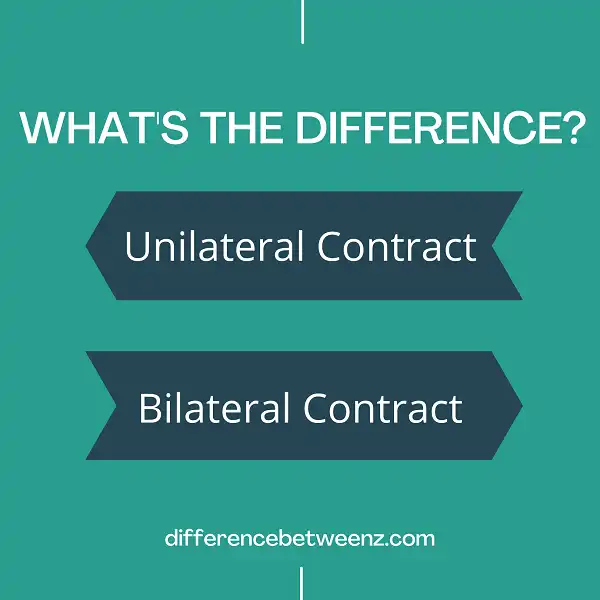Unilateral and bilateral contracts are two common contract types that businesses use. But what is the difference between them, and when should you use each? In this blog post, we’ll break down the key differences between unilateral and bilateral contracts, as well as provide some tips on when to use each type. Let’s get started!
What is a Unilateral Contract?
A unilateral contract is a contract between two parties where only one party is bound to the terms of the contract. The other party may choose whether or not to fulfill their obligations under the contract. Unilateral contracts are often used in situations where one party wants to offer a reward for the completion of a task. For example, a company may offer a cash reward for information leading to the arrest of a suspected criminal. Learning about unilateral contracts can be helpful in understanding how businesses operate and how to protect your legal rights.
What is Bilateral Contract?
A bilateral contract is an agreement between two parties in which each party agrees to perform a specific obligation. The most common type of bilateral contract is a purchase agreement, in which one party agrees to sell goods or services to the other party in exchange for payment. Other types of bilateral contracts can include employment agreements, loan agreements, and lease agreements. In a bilateral contract, each party is legally bound to fulfill its obligations under the agreement. If one party fails to do so, the other party can take legal action to enforce the contract. Bilateral contracts are typically written agreements that are signed by both parties. However, they can also be oral agreements or even implied agreements based on the actions of the parties.
Difference between Unilateral Contract and Bilateral Contract
Unilateral and bilateral contracts are the two main types of contracts used in business. A unilateral contract is a contract where only one party is bound to perform, while a bilateral contract is a contract where both parties are bound to perform. The main difference between the two types of contracts is that a unilateral contract only has one offer, while a bilateral contract has two offers. In a unilateral contract, the offer is made by one party and accepted by the other party when they perform the requested action. In a bilateral contract, each party makes an offer and the contract is formed when both parties accept the terms of the agreement. For example, if you buy a car from a dealership, the dealership would be making a unilateral offer that you can accept by paying for the car. If you were to buy a car from a private seller, it would be considered a bilateral contract as both parties are making offers (the buyer offers to pay an agreed-upon amount and the seller agrees to sell the car).
Conclusion
A unilateral contract is created when one party makes an offer and the other party accepts it without any further negotiations. The acceptance must be absolute and unqualified for a unilateral contract to be formed. Bilateral contracts, on the other hand, are created when both parties exchange mutual promises. This type of contract requires that each party make a valid offer and that each promise be exchanged in good faith. In order for either type of contract to be binding, there must be consideration given by both parties. Do you know which type of contract your business uses?


